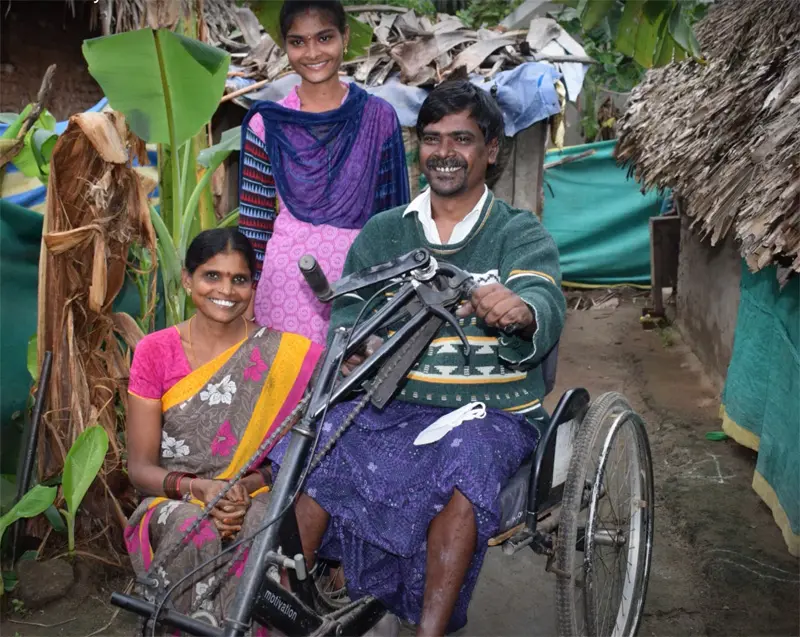
In India, over 26.8 million people (2.2% of the population) live with disabilities, yet fewer than 1 in 10 has access to basic assistive devices such as wheelchairs. For those with mobility impairments, the absence of appropriate wheelchairs is not merely an inconvenience — it results in chronic pain, postural deformities, pressure ulcers, and preventable secondary health complications. More profoundly, it forces people into dependence, social isolation, and a cycle of lost opportunities in education and livelihood. This stark gap between need and access has left millions among the most vulnerable and invisible in our society.
Our partner organization is breaking this cycle with a transformative, user-centric approach. Instead of distributing generic devices, which often cause further damage, they focus on customized wheelchairs designed for each individual’s body, lifestyle, and environment. Community support is established where trained rehabilitation professionals assess, fit, and follow up with users, ensuring not just mobility, but comfort, dignity, and independence.
The initiative goes beyond devices — it is building a sustainable ecosystem of support and empowerment. A second pillar of the program trains healthcare workers, community facilitators, and peer wheelchair users to deliver ongoing care, mobility training, and rights-based advocacy. Peer users, in particular, are stepping up as leaders — advocating for their rights, mentoring fellow users, and amplifying the voice of people with disabilities in policymaking.
The impact – Families report better health outcomes and reduced medical complications; communities witness increased participation of persons with disabilities in schools, workplaces, and social life. By combining sustainable products, trained personnel, empowered peer networks, and policy advocacy, our partner is creating a comprehensive, user-centric ecosystem and model of Inclusion that not only delivers immediate mobility solutions but also drives long-term inclusion and independence for people with disabilities in underserved areas.

